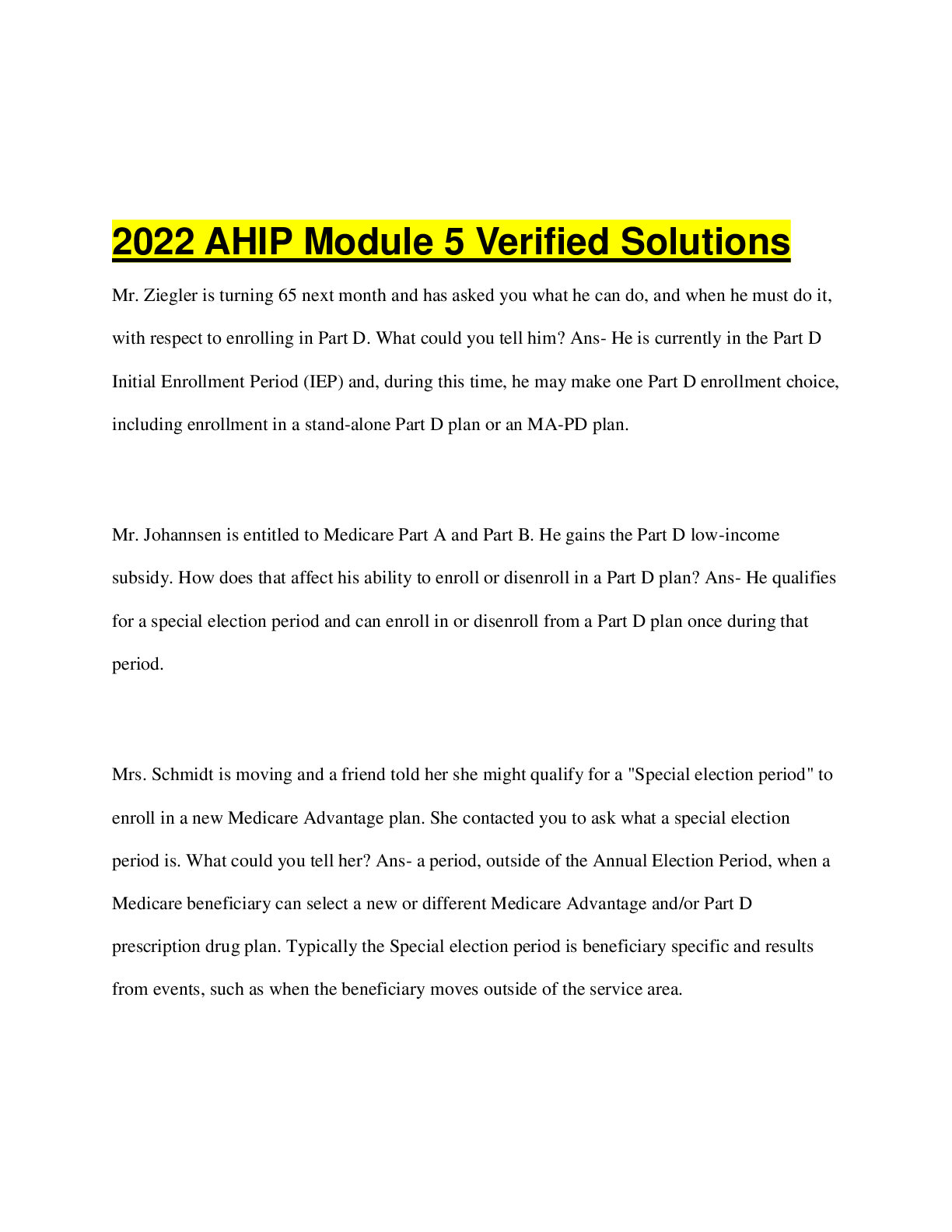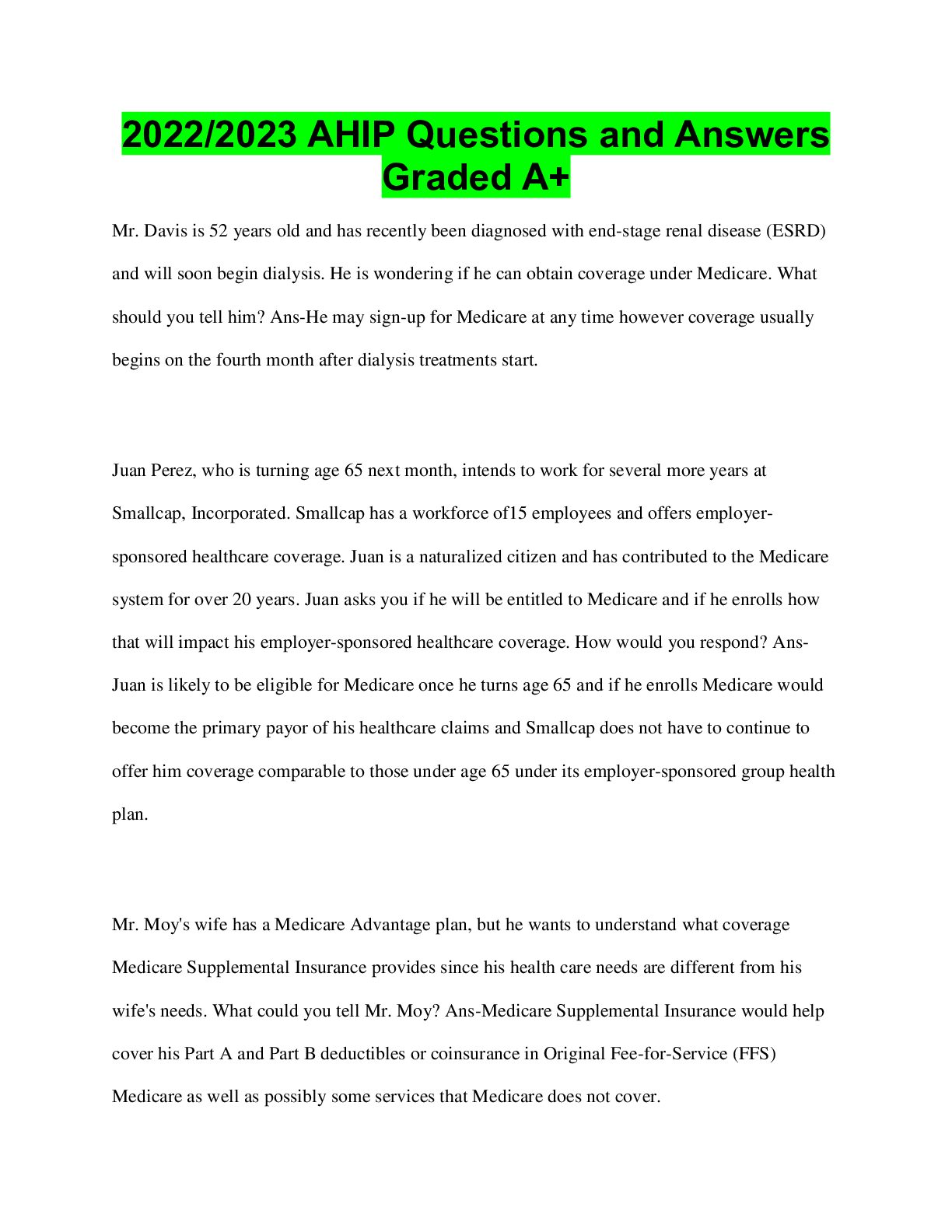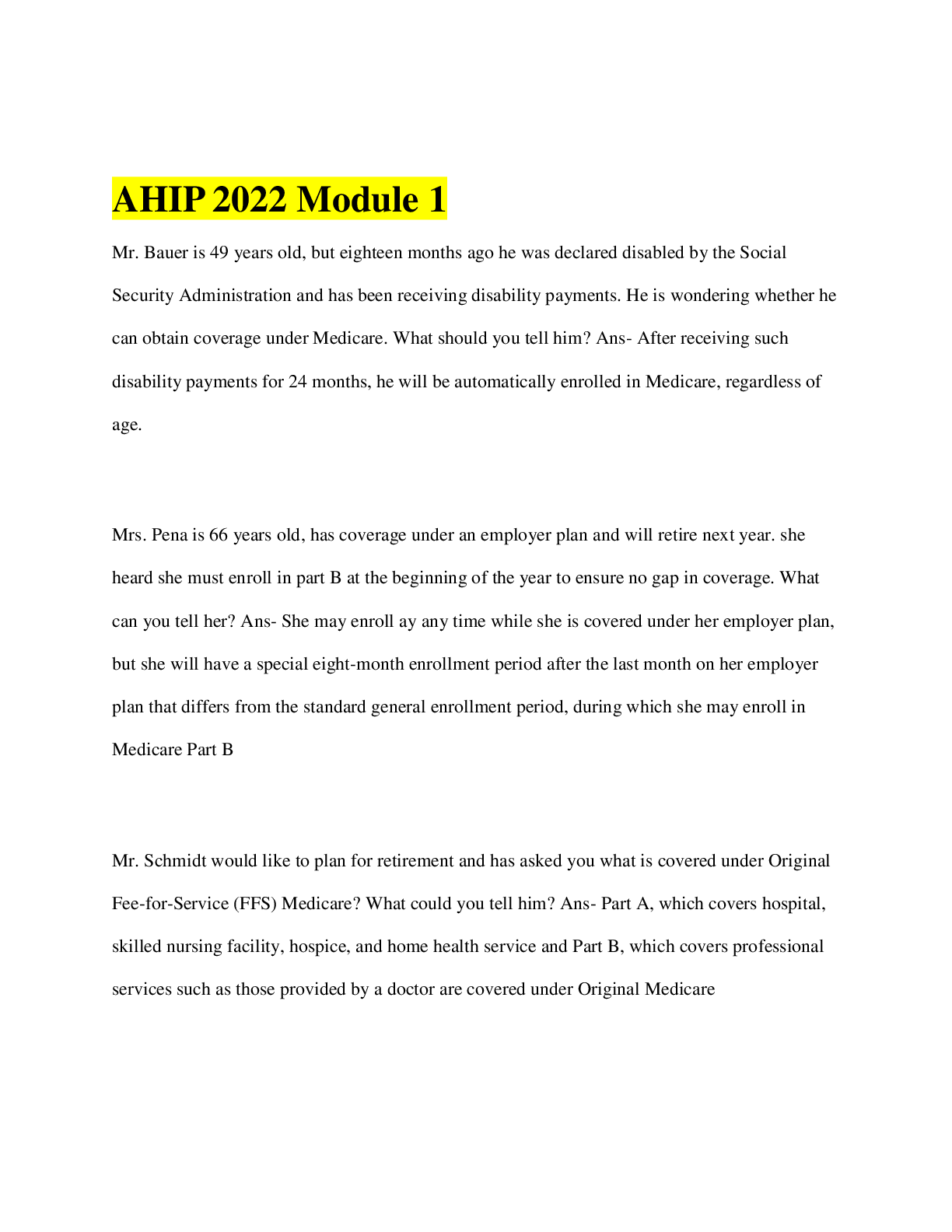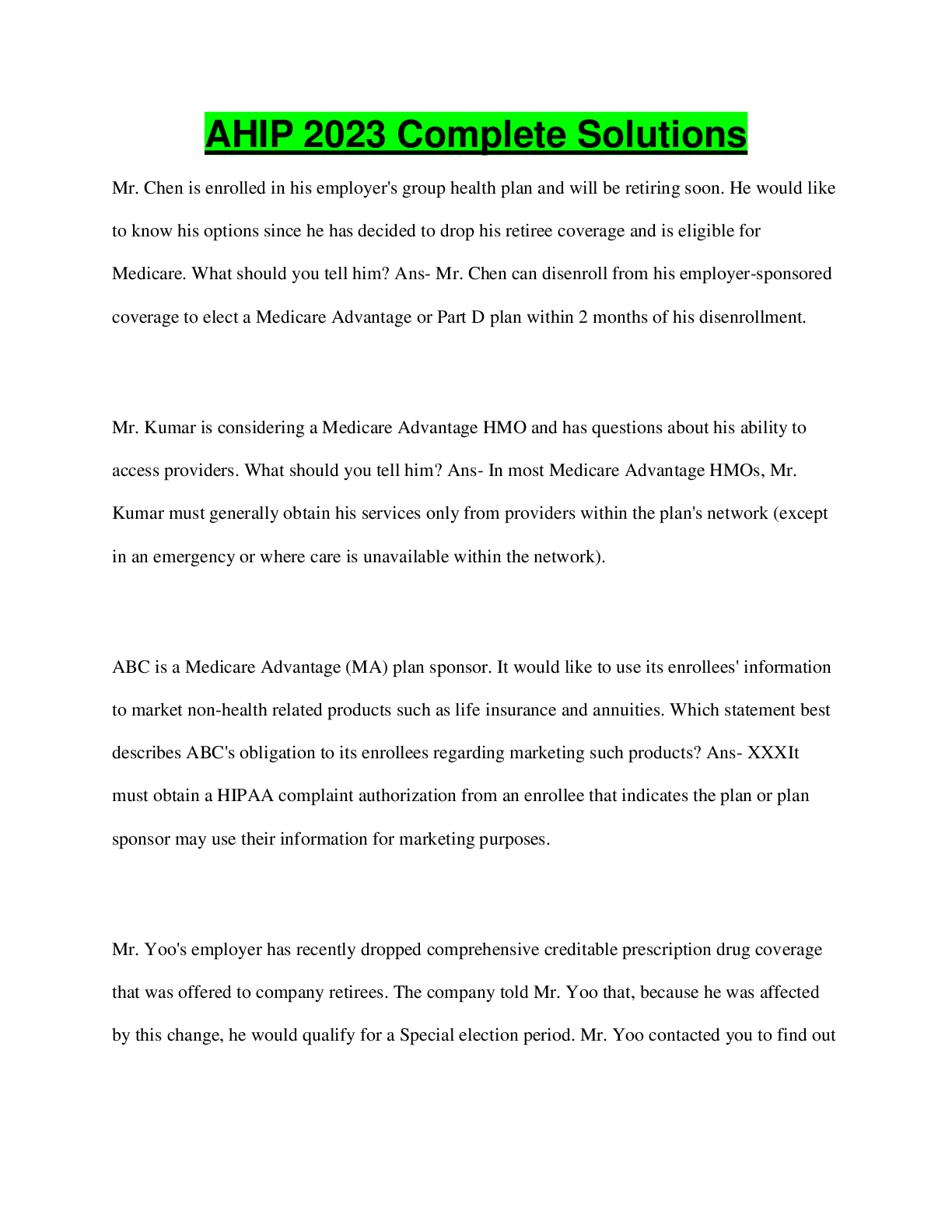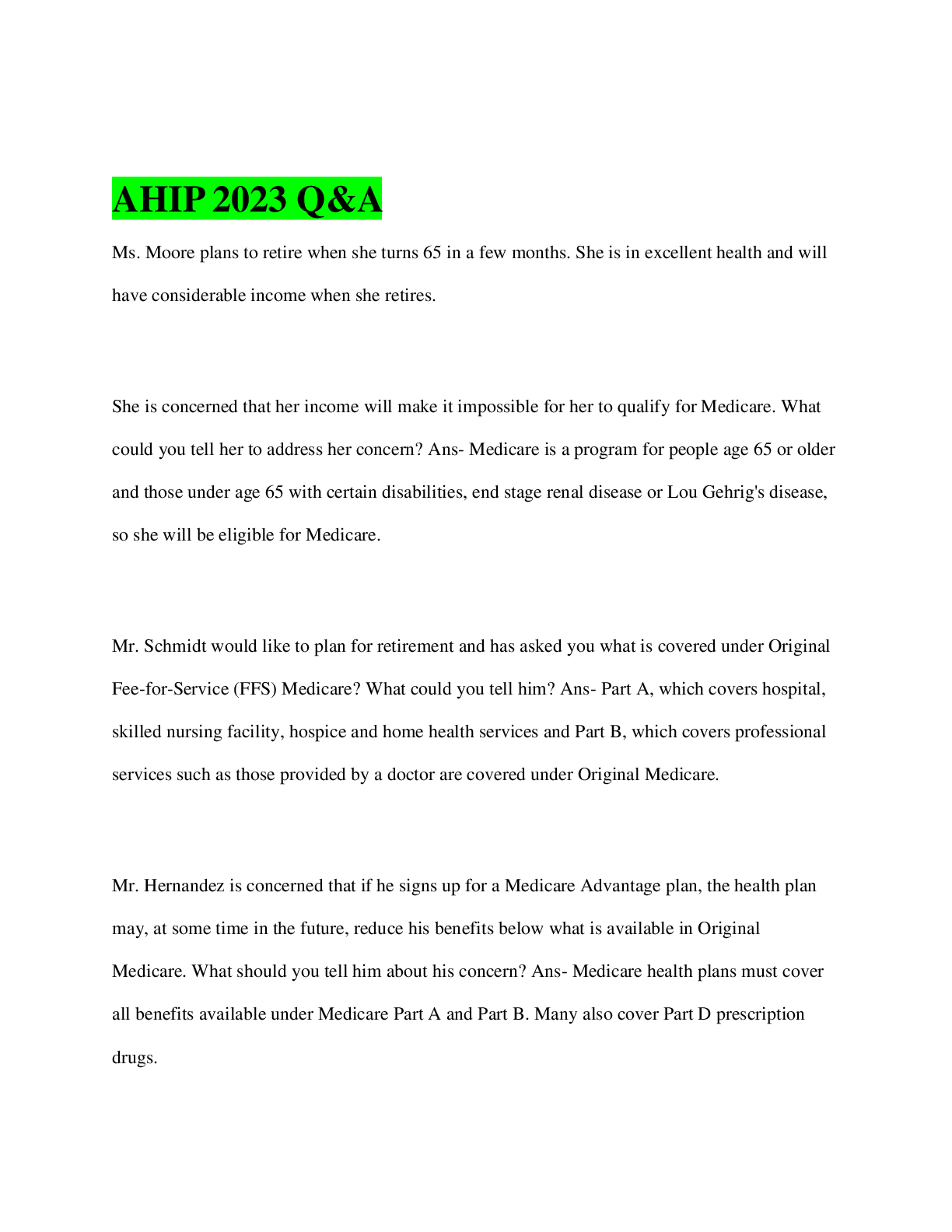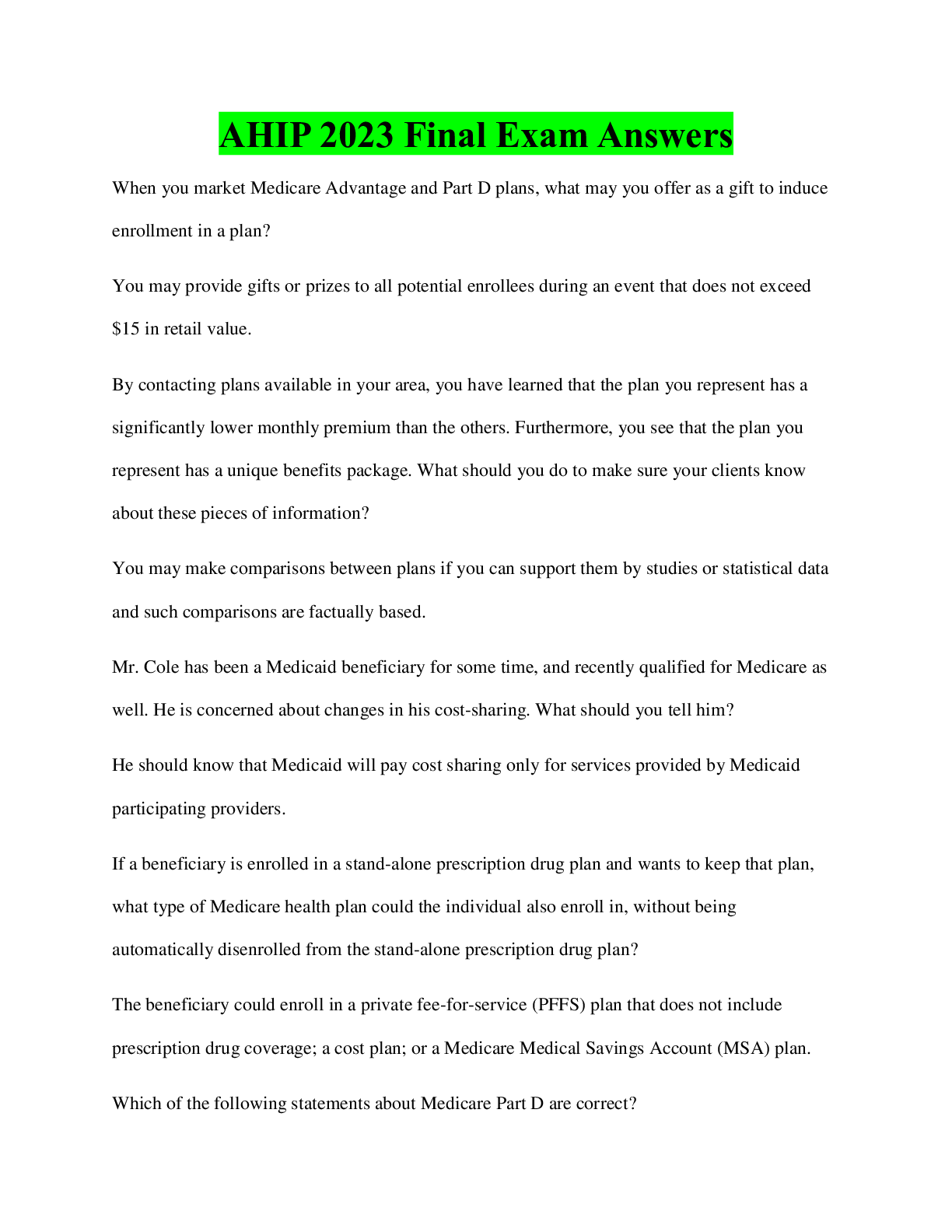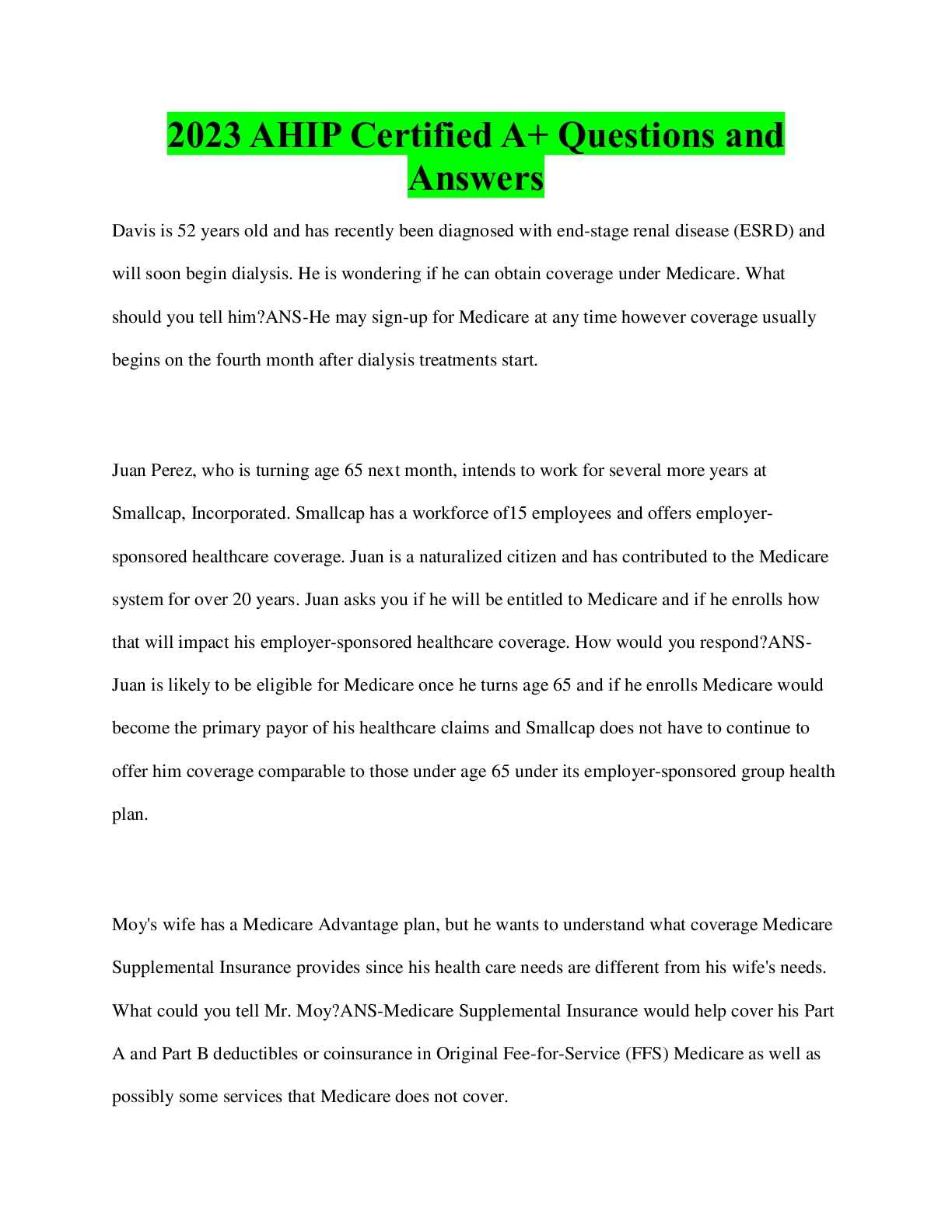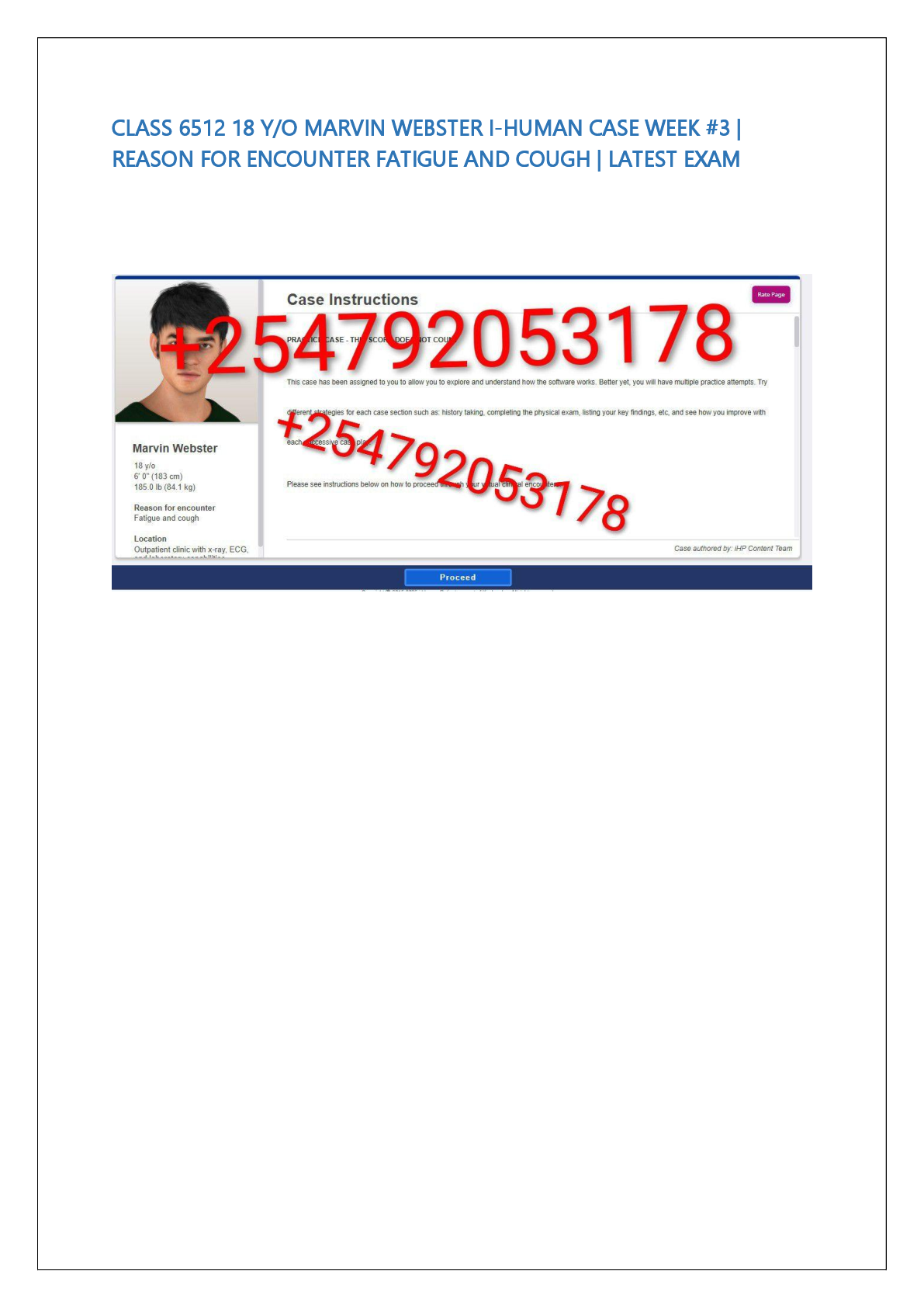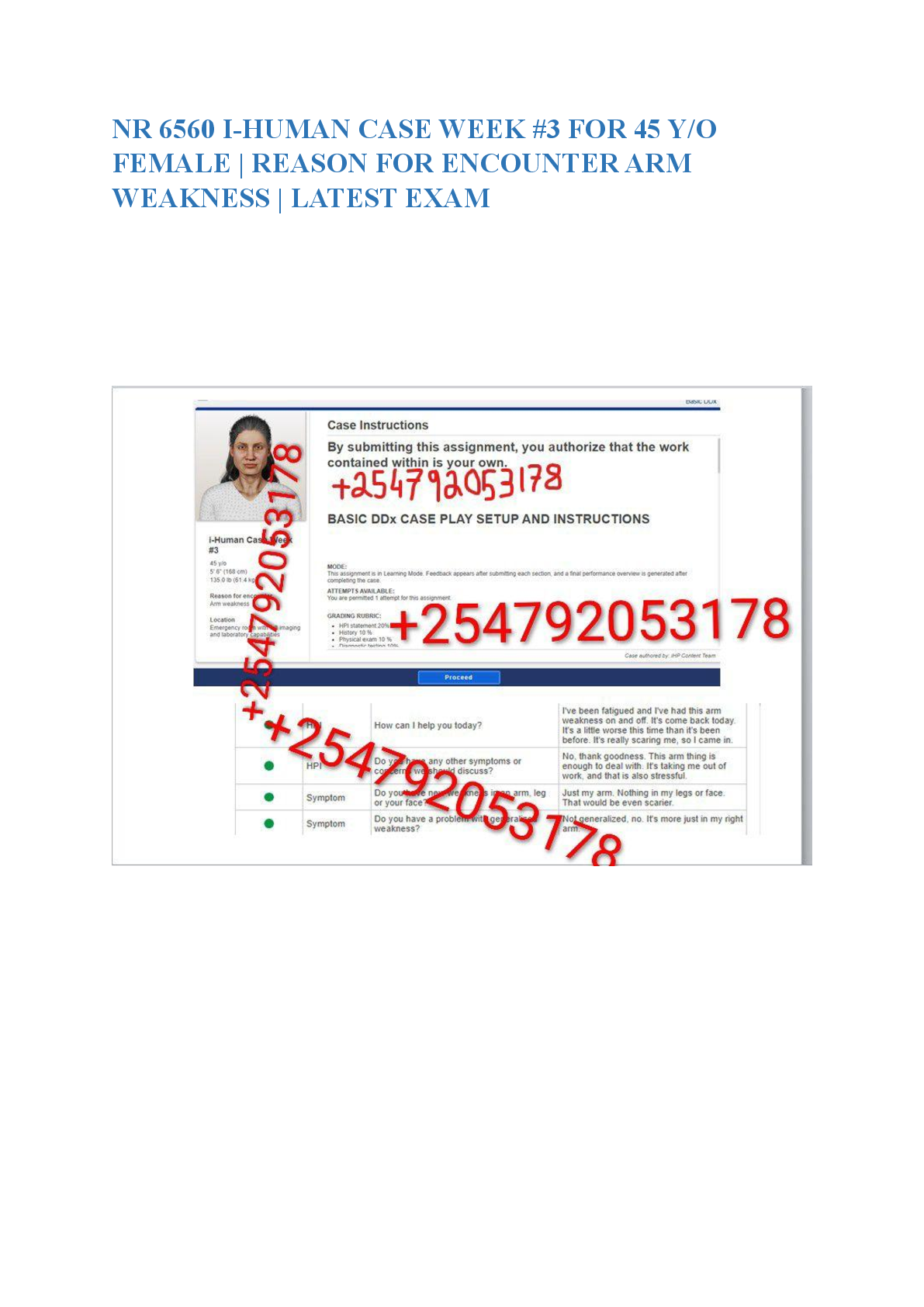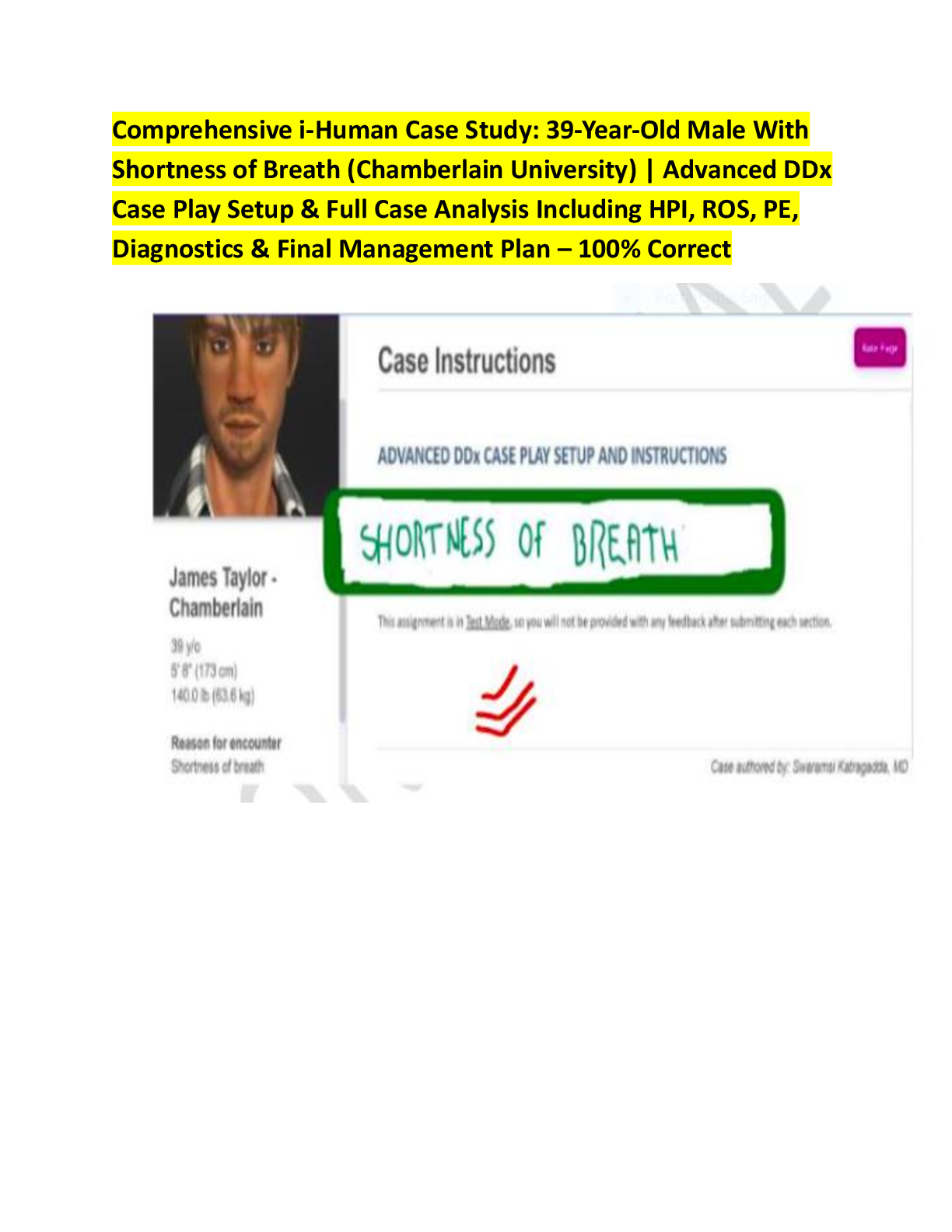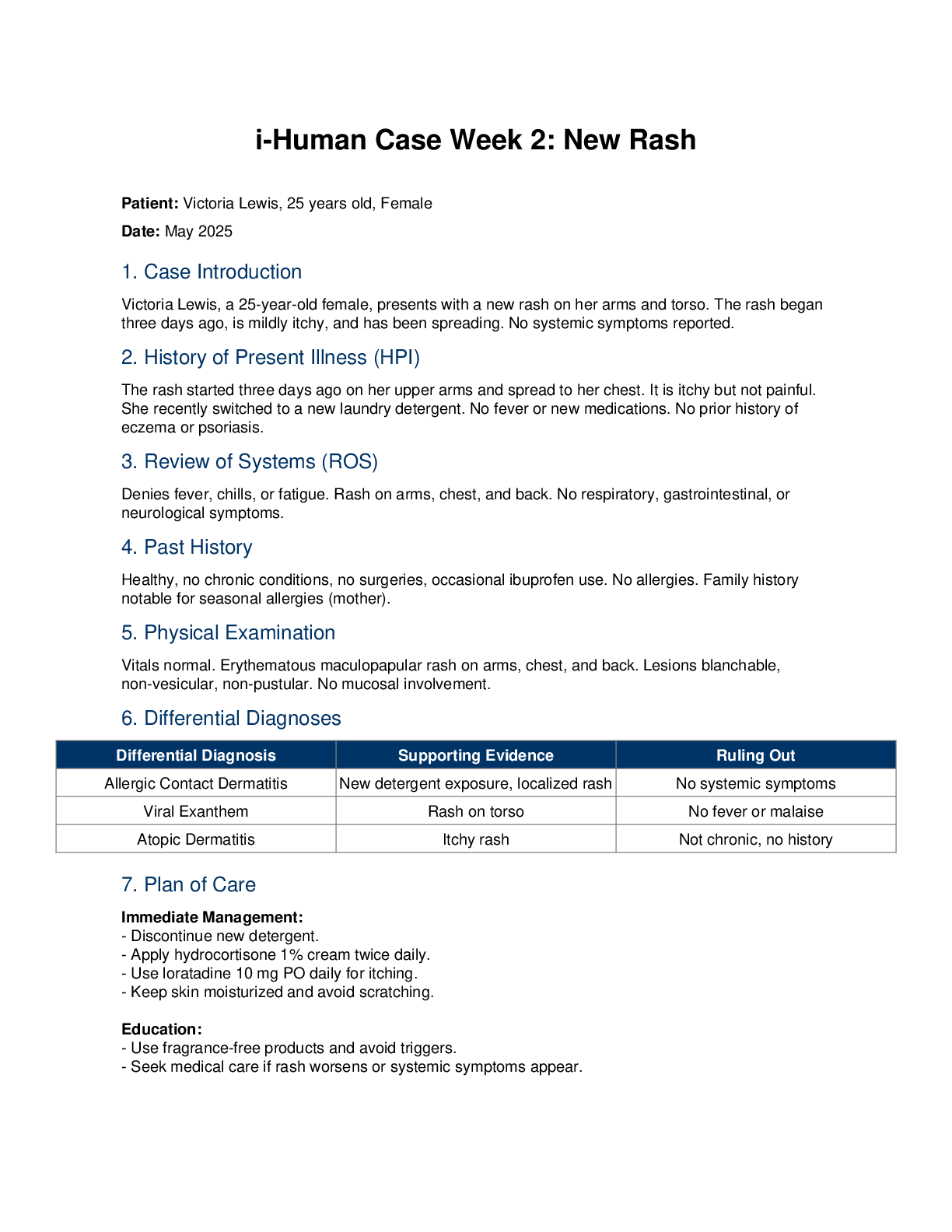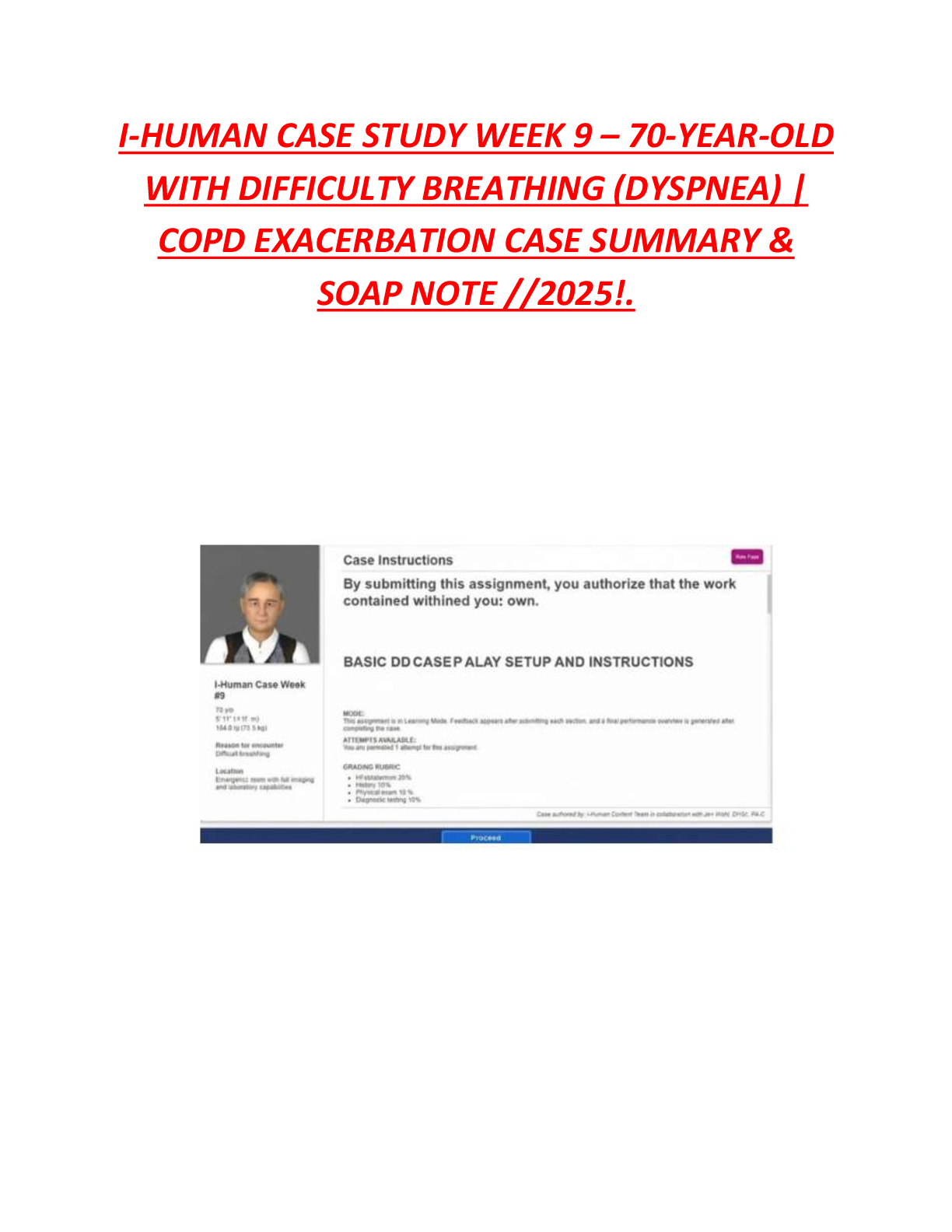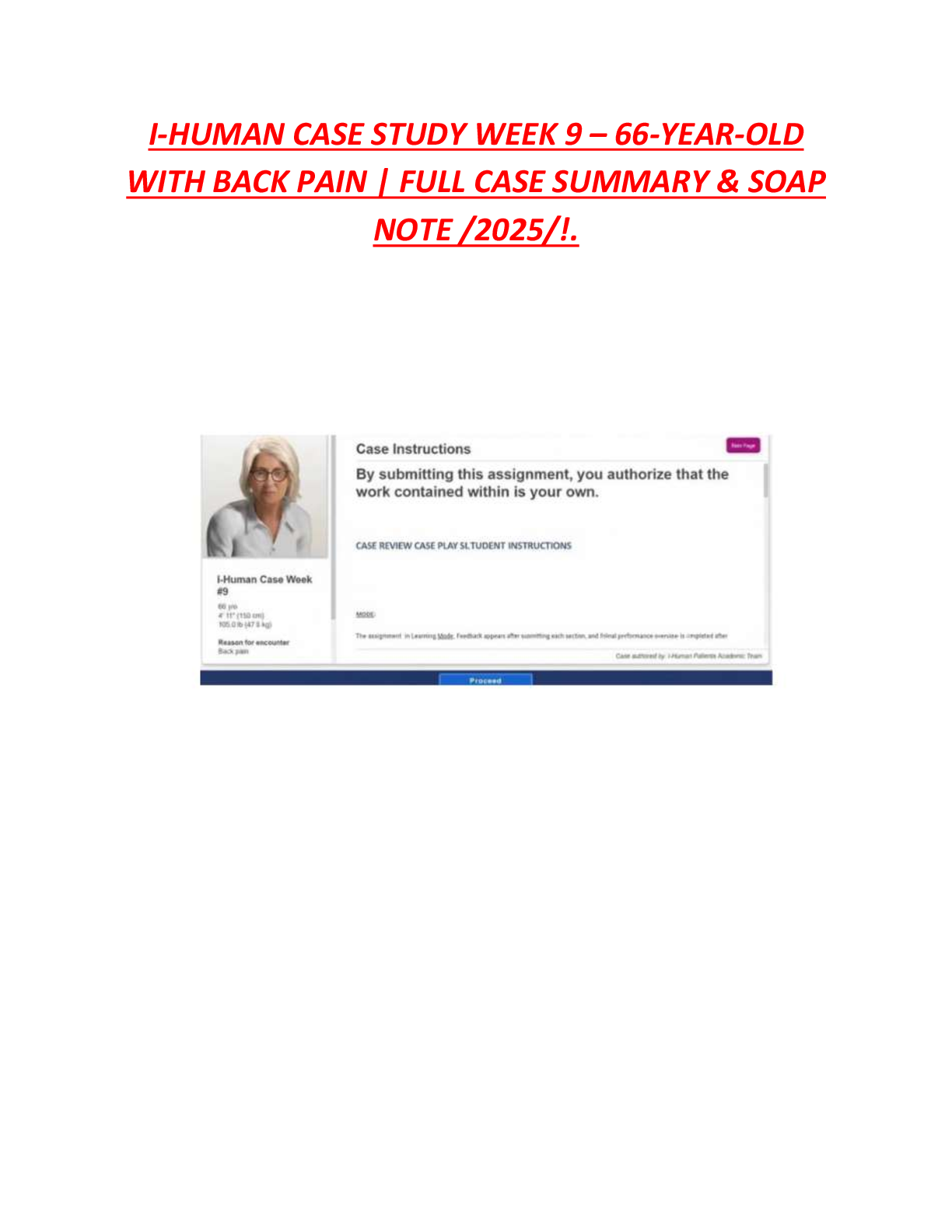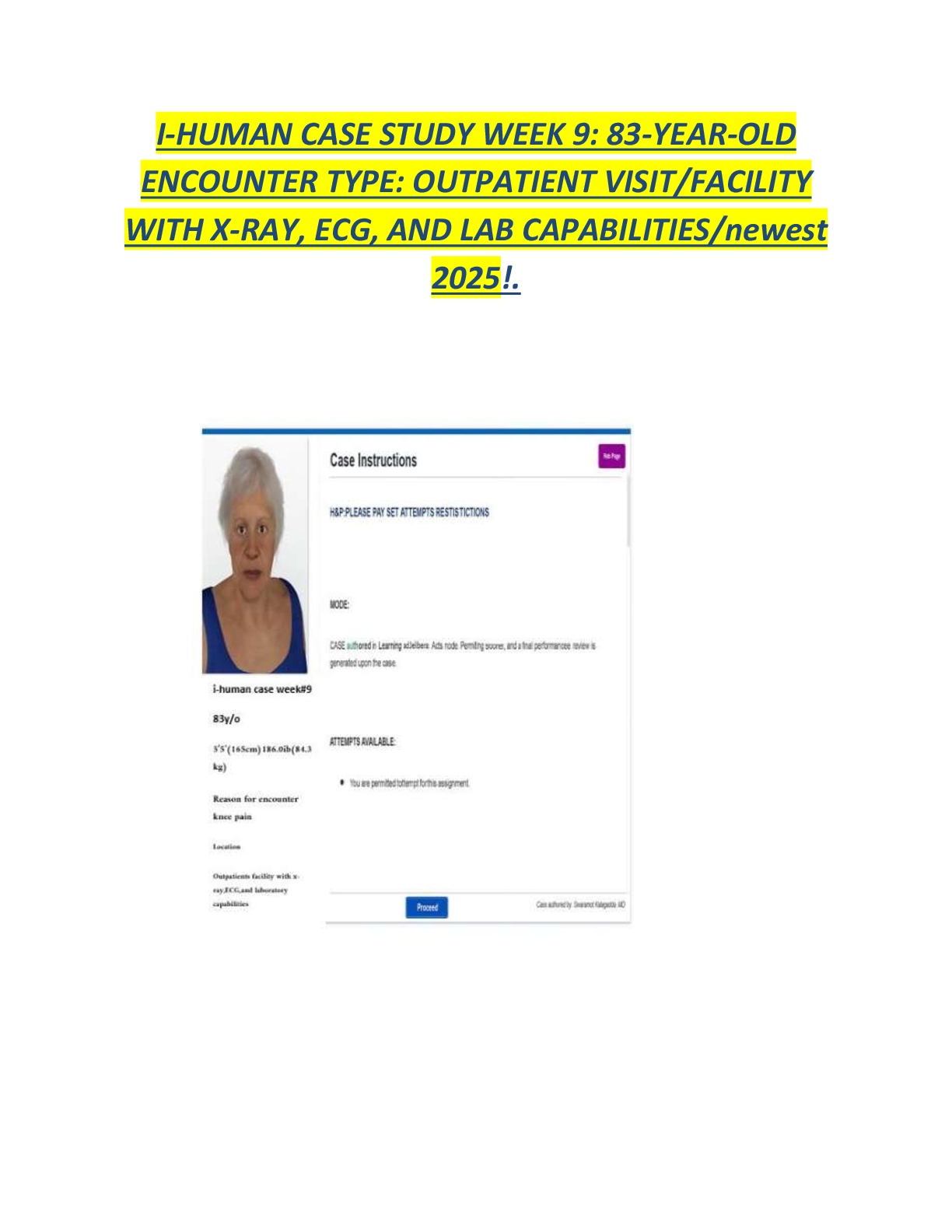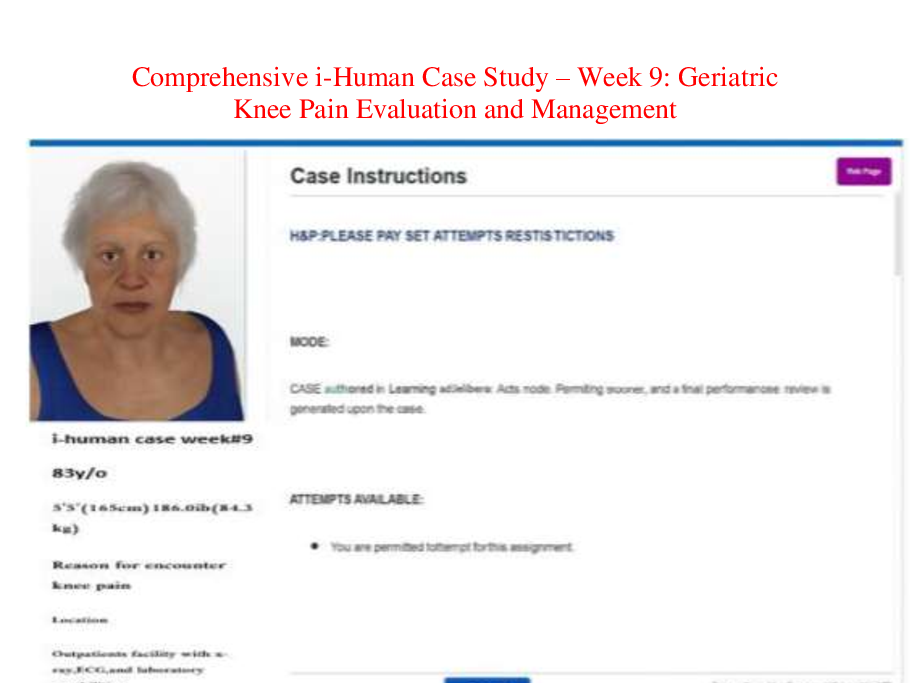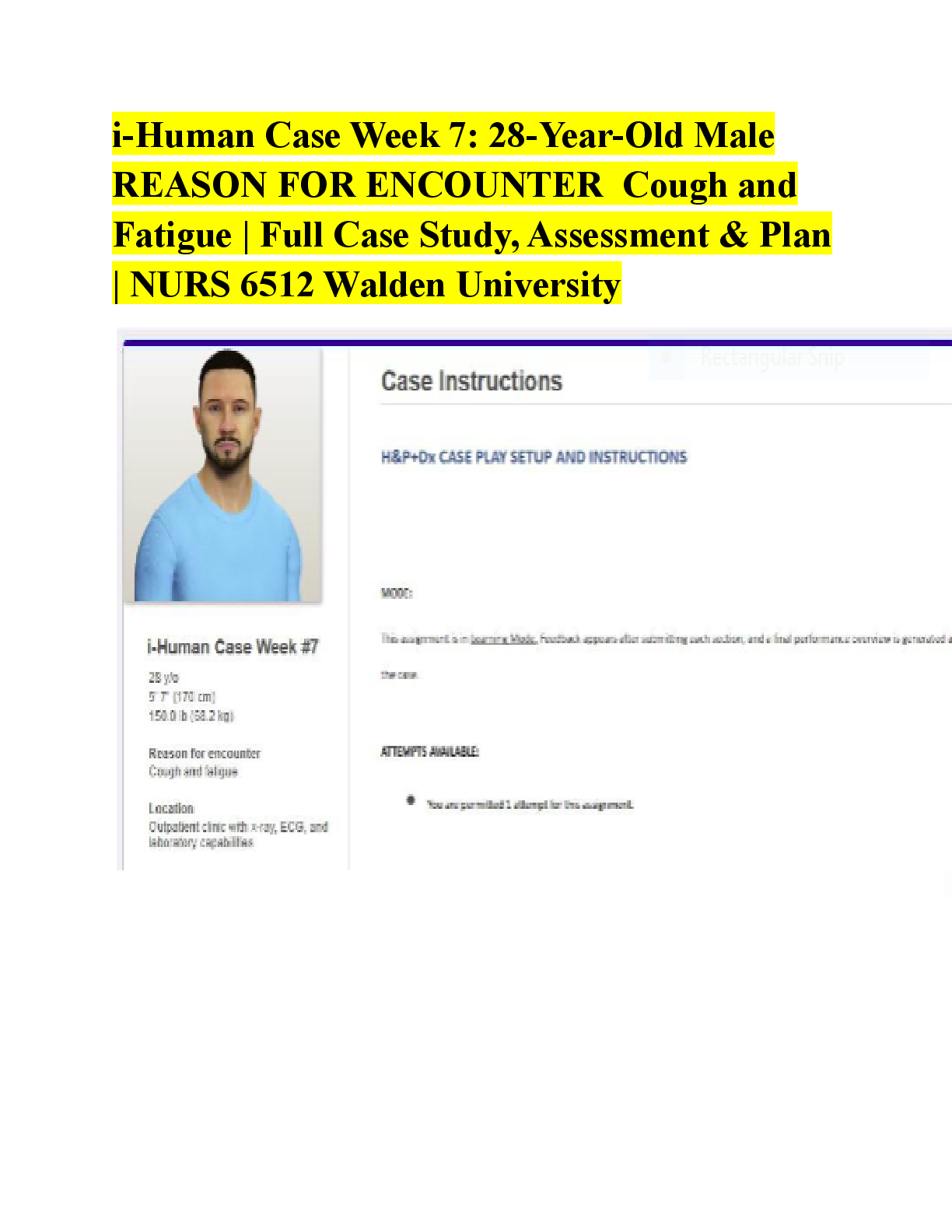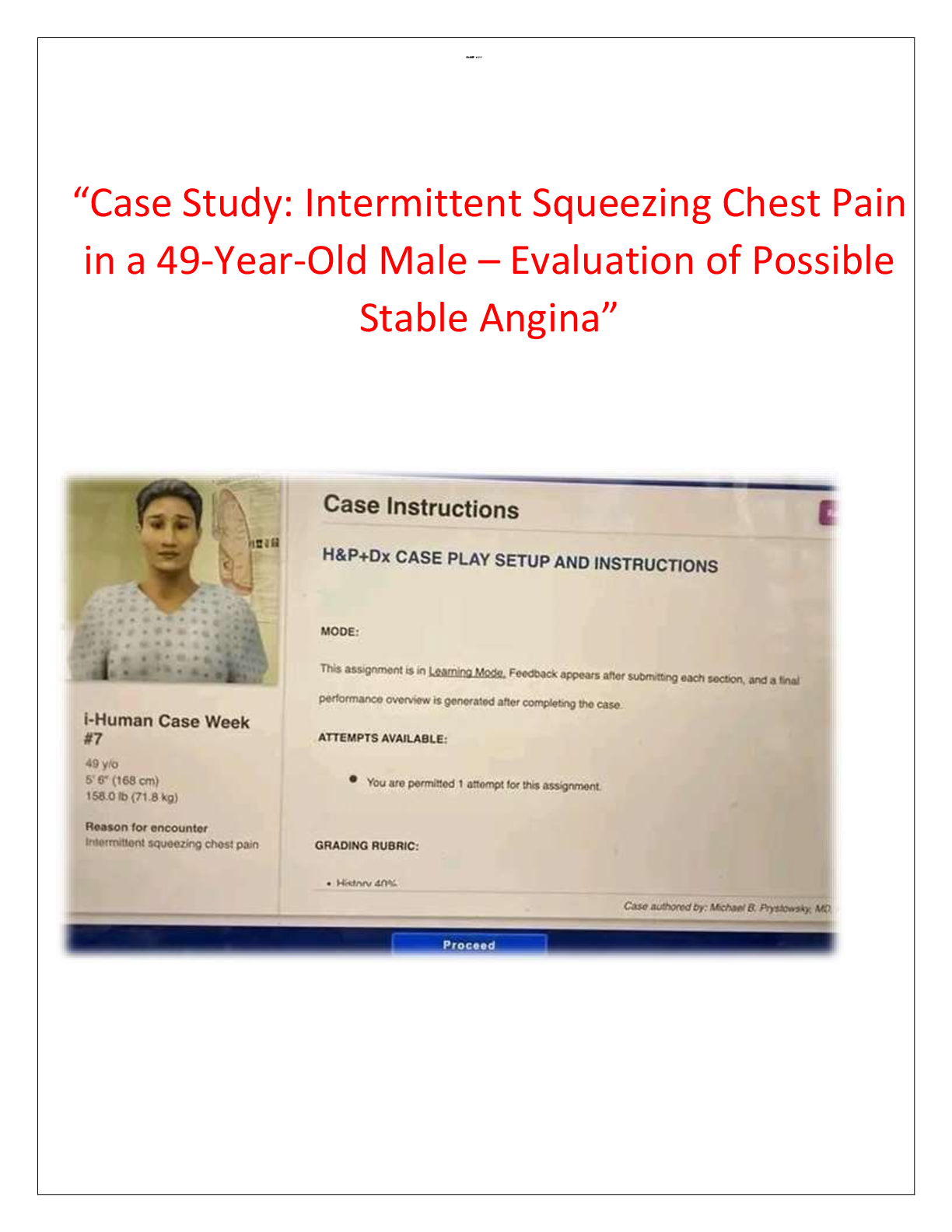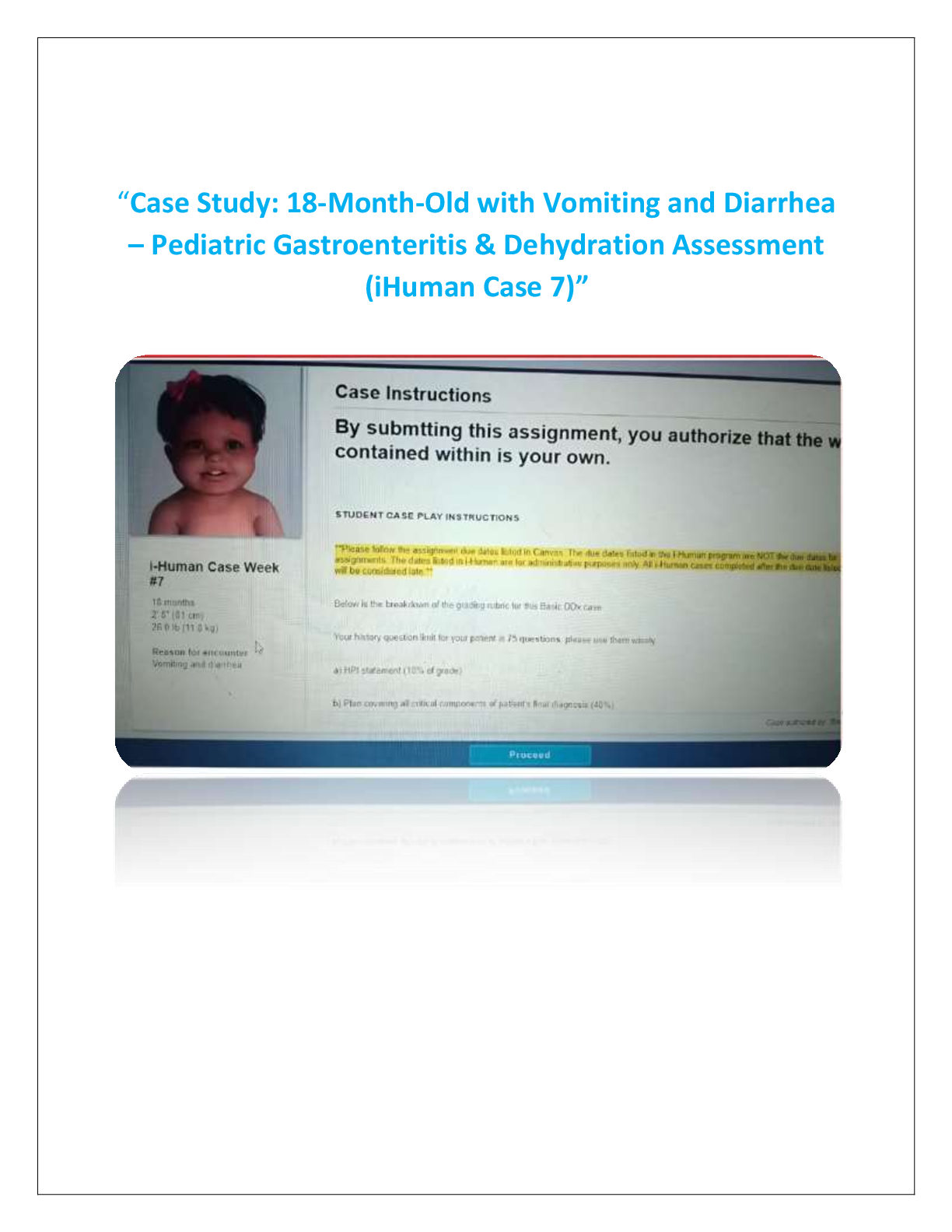*NURSING > CASE STUDY > Summary PHI 413V Topic 3 Assignment; Case Study on Biomedical Ethics in the Christian Narrative Appl (All)
Summary PHI 413V Topic 3 Assignment; Case Study on Biomedical Ethics in the Christian Narrative Applying the Four Principles: Case Study 2022.
Document Content and Description Below
Case Study on Biomedical Ethics in the Christian Narrative Brandee Roy Grand Canyon University PHI 413V Ethical and Spiritual Decision Making in Health Care January 24, 2021 This study source was ... downloaded by 100000860583932 from CourseHero.com on 01-19-2023 02:11:23 GMT -06:00 https://www.coursehero.com/file/79636479/PHI-413V-Case-Study-on-Biomedical-Ethics-in-the-Christian-Narrativedocx/ Applying the Four Principles: Case Study Part 1: Chart (60 points) Based on the “Healing and Autonomy” case study, fill out all the relevant boxes below. Provide the information by means of bullet points or a well-structured paragraph in the box. Gather as much data as possible. Medical Indications Beneficence and Nonmaleficence Patient Preferences Autonomy Group A Streptococcus infection/Strep throat Acute glomerulonephritis/kidney failure caused by complications of strep throat High blood pressure Fluid retention Need for dialysis Kidney replacement James is a minor patient, the child of Mike and Joanne. The physician discusses James’s condition and necessary treatment options with the parents, but they choose to decline. James’s parents decide to immediately take him to a faith healing service, placing their faith in God and hoping he will be healed by prayer, instead of beginning dialysis. James’s condition worsens over the next two days and his parents bring him back to the hospital. Due to his worsening health condition, he needs daily dialysis and a kidney transplant. With daily dialysis his condition stabilized but he still required a kidney donor within the year. Quality of Life Beneficence, Nonmaleficence, Autonomy Contextual Features Justice and Fairness The physician strongly believed James required immediate dialysis to prevent further kidney damage but allowed the parents autonomy to make the health care decision on behalf of James. His parents opted to place their faith in God and a faith healing service. Although the outcome wasn't fatal, James’s condition worsened placing his parents in fear and shaken faith, Contextual factors refer to immediate environment of the patient that could influence medical decisions. Family (James being a minor, allows his parents to make medical decisions on his behalf) Religion (James’s parents chose to wait for God to heal him) James’s parents’ religious and spiritual This study source was downloaded by 100000860583932 from CourseHero.com on 01-19-2023 02:11:23 GMT -06:00 https://www.coursehero.com/file/79636479/PHI-413V-Case-Study-on-Biomedical-Ethics-in-the-Christian-Narrativedocx/ wondering who and why they were being punished by God. James’s condition requires permanent dialysis requiring a kidney transplant. The nephrologist reveals the only match for James’s transplant is his twin brother, Samuel, placing his parents with a new struggle to face. They must decide if using one child for the benefit of the other or wait for a miracle from God is what they want to do. practices deny him justice and fairness by delaying treatment of his medical condition. It is questioned if it is fair to use Samuel as James’s kidney donor. Mike, the twins’ father, questions if this is a punishment from God. The parents are faced with a critical decision of carrying out acts of justice and fairness to James that will change the lives of the entire family. Part 2: Evaluation Answer each of the following questions about how the four principles and four boxes approach would be applied: 1. In 200-250 words answer the following: According to the Christian worldview, how would each of the principles be specified and weighted in this case? Explain why. (45 points) The most weighted principle in this case study is respecting autonomy. Autonomy is like free will, which is part of God's plan. The parents’ refusal of treatment for James’s condition and respect of their autonomy by the physician were all mentioned. Autonomy, as explained in the Christian Narrative, means patients have a right to hold views, to make choices, and to take actions based on their values and beliefs while having respect for their decision-making capabilities (Hoehner, 2020). Patients and parents or legal guardians of children have the rights to make their own decisions and that we need to respect them whether we agree with it or not. James’s parents are exercising autonomy by choosing to rely on their faith in God to heal James instead of medical procedures. The risks and benefits of hospitalization and medical treatment in regard to James’s medical condition were thoroughly explained by the physician to the parents. Although the parents understood their son was sick, they opted to seek healing through prayer, taking him to a faith healing service. They acted with faith and good intentions. Beneficence and This study source was downloaded by 100000860583932 from CourseHero.com on 01-19-2023 02:11:23 GMT -06:00 https://www.coursehero.com/file/79636479/PHI-413V-Case-Study-on-Biomedical-Ethics-in-the-Christian-Narrativedocx/ non-maleficence are the acts for the benefit of others or to do good and the moral obligation to not to inflict or do no harm (Hoehner, 2020). The outcome of James’s condition would have been different if his parents chose to go ahead with dialysis as recommended by the doctor. With them delaying treatment, they put their son’s health in jeopardy. Upon returning to the hospital due to James’s worsening condition, the nephrologist plays a significant role in advocating for James. With James being on routine dialysis and requiring a kidney transplant for survival, beneficence and non-maleficence principles are priority to save his life. As healthcare professionals we have an obligation to prevent harm to our patients. Justice is when one is treated with fairness and transparency. It is showing respect regardless of socioeconomic status, race, religion, or gender. Justice, in this case study, is the considering the quality of life of Samuel if he were to donate a kidney to his twin brother. Their parents, Mike and Joanna, will have to live with every choice they make about the treatment and outcomes of their children. 2. In 200-250 words answer the following: According to the Christian worldview, how might a Christian balance each of the four principles in this case? Explain why. (45 points) Principlism includes the following four principles, respect for autonomy, beneficence, non-maleficence, and justice, complimenting each other (Hoehner, 2020). The four principles approach are ethical decision-making tools that develop an ethical framework for healthcare. Autonomy gives individuals the ability to exercise their rights and to make their own decisions that best suit their needs without pressure or influence. Beneficence acting in the benefit of others while non-maleficence means to not inflict or do harm to others. Based on the Christian worldview, balancing the four principles is situational. It is evident from the case study, the family’s belief in God and faith are extremely important. Their first choice is to turn to God by religious and spiritual practices for healing This study source was downloaded by 100000860583932 from CourseHero.com on 01-19-2023 02:11:23 GMT -06:00 https://www.coursehero.com/file/79636479/PHI-413V-Case-Study-on-Biomedical-Ethics-in-the-Christian-Narrativedocx/ through prayer. James’s physician has an obligation to provide education and treatment options to his patients, including James, especially when his health condition worsened. This is an example of beneficence and non-maleficence, ensuring the best interest of the patient. After discussing the severity of James’s condition with the doctor, Mike and Joanne, James’s parents, decline dialysis treatment and instead believing God will heal him. Their worldview and autonomous decisions must be respected. After a few days, James’s condition worsens having his parents still seeking help, returning to the hospital, agreeing to dialysis, only to find out he now needs a kidney transplant with the best match being his twin brother. Justice is allowing James a fair chance at survival beyond dialysis by giving him a kidney from a donor. Mike and Joanne are faced dealing with their decisions which have affected their entire family, especially James and Samuel. This study source was downloaded by 100000860583932 from CourseHero.com on 01-19-2023 02:11:23 GMT -06:00 https://www.coursehero.com/file/79636479/PHI-413V-Case-Study-on-Biomedical-Ethics-in-the-Christian-Narrativedocx/ References: Freer, J. (2017). Autonomy in Applied Medical Ethics. Ethics & Medicine, 33(1), 21-25,3. https://lopes.idm.oclc.org/login?url=https://www-proquestcom.lopes.idm.oclc.org/scholarly-journals/autonomy-applied-medicalethics/docview/1861785878/se-2?accountid=7374 Grand Canyon University (GCU). (2020). Case Study: Healing and Autonomy Hoehner, P. (2020). Grand Canyon University (Ed). Practicing dignity: An introduction to Christians values and decision making in health care. Retrieved from https://lc.gcumedia.com/phi413v/practicing-dignity-an-introduction-to-christian-valuesand-decision-making-in-health-care/v1.1/#/chapter/3 This study source was downloaded by 100000860583932 from CourseHero.com on 01-19-2023 02:11:23 GMT -06:00 https://www.coursehero.com/file/79636479/PHI-413V-Case-Study-on-Biomedical-Ethics-in-the-Christian-Narrativedocx/ Powered by TCPDF (www.tcpdf.org) [Show More]
Last updated: 2 years ago
Preview 1 out of 6 pages

Buy this document to get the full access instantly
Instant Download Access after purchase
Buy NowInstant download
We Accept:

Reviews( 0 )
$6.00
Can't find what you want? Try our AI powered Search
Document information
Connected school, study & course
About the document
Uploaded On
Jan 19, 2023
Number of pages
6
Written in
All
Additional information
This document has been written for:
Uploaded
Jan 19, 2023
Downloads
0
Views
169



